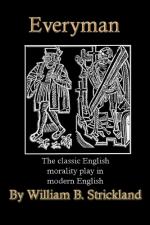|
This section contains 9,094 words (approx. 31 pages at 300 words per page) |

|
SOURCE: Jambeck, Thomas J. “Everyman and the Implications of Bernardine Humanism in the Character ‘Knowledge.’” Medievalia et Humanistica 8, (1977): 103-23.
In the following essay, Jambeck argues that Bernadine Humanism sheds much light on the principles of Everyman.
In his recent essay on the play Everyman V. A. Kolve addresses himself to what persists as “one of the most difficult questions in Everyman scholarship. Namely, is the character Knowledge to be understood in something like our modern sense of that term [scientia, intelligentia]? Or does it stand instead for the even then rarer, and now archaic, medieval sense of ‘acknowledge,’ naming that part of the sacrament of penance which concerns a full confession of sins?”1 With few exceptions, most readers subscribe to one of the two general definitions which Kolve succinctly outlines: Those who regard her as scientia note the humanistic implications in the “crucial placement of Knowledge … as the...
|
This section contains 9,094 words (approx. 31 pages at 300 words per page) |

|


